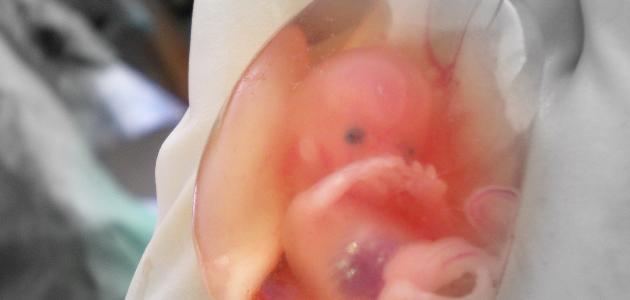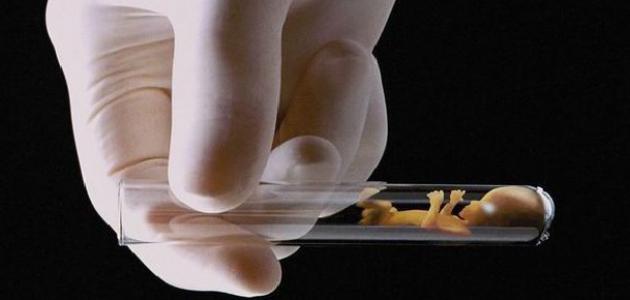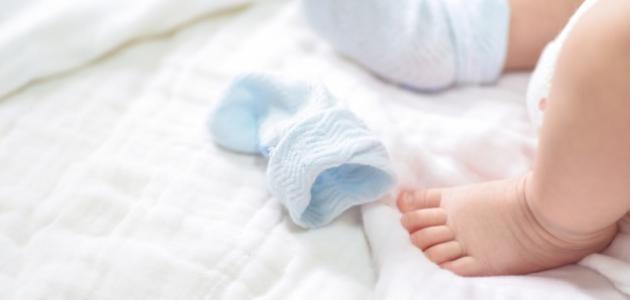Contents
Miscarriage and recurrent miscarriage
Abortion is defined as the loss of the fetus before the twentieth week of pregnancy, and according to statistics, one in every 5 cases of confirmed pregnancy ends with a miscarriage, and there are many women who undergo abortion without realizing the existence of pregnancy in the first place, and it is worth noting that there are many types of miscarriages , of which threatened , and the inevitable , full, and complete, as class some ectopic pregnancy , and pregnancy cluster as types also for abortion. [1] As for recurrent miscarriages, it is defined as the loss of a pregnancy two or more times, and the percentage of women who suffer from this condition is about 1%, and in fact, 50-75% of recurrent miscarriages have no specific cause. [2]
Causes of recurrent miscarriage
The occurrence of recurrent miscarriage is due to many factors and causes, the most important of which can be explained as follows: [3]
- The age of the mother: The possibility of miscarriage increases with the advancement of the woman in age, and the advanced age of the man is a risk factor for the occurrence of miscarriage as well, as the risk of miscarriage is higher if the woman is over 35 years old and the man is 40 years old. This is due to a number of reasons, including: the increased likelihood of fetuses having chromosomal disorders due to a decrease in the quality of the ovum cell , or a decrease in the function of the uterus and ovaries in women, or otherwise.
- Uterine abnormalities: They may be acquired or hereditary, and uterine abnormalities can be diagnosed through magnetic resonance imaging or hysteroscopy .
- Chromosomal abnormalities: These cases account for 3-6% of all recurrent miscarriages.
- Causes immunological genetic and immunological: shows a series of auto - antibodies secreted by the immune system by mistake, such as anti antiphospholipid , and the antibody to the nucleus , and the body 's anti-thyroid in women who objects Suffer from frequent miscarriages. An example of an autoimmune disease related to repeated miscarriage is the so-called antiphospholipid syndrome.
- Hypercoagulability: , also known as thrombophilia, this condition may be hereditary or acquired, and the effect of hypercoagulability in the occurrence of miscarriage can be explained by an increase in the risk of clot formation in the nascent choroid vessels leading to placental infarction.
- Endocrine-related causes: For example, hypothyroidism and Polycystic Ovary Syndrome .
- Breaking the DNA of sperm: , as the high level of occurrence of this situation affects semen quality, and there is a close association between DNA damage in the sperm and the incidence of abortion.
- Lifestyle: For example, drinking alcohol and smoking.
- Exposure to infection: Infection of a woman with Listeriosis, or Toxoplasmosis, or one of the forms of viral infection may lead to the loss of one pregnancy, and infection with malaria , syphilis, or Brucellosis may lead to Recurrent miscarriage.
- Factors related to the ovaries: It is believed that the occurrence of a disorder in the luteal phase (scientific name: Luteal phase), such as being less than 11 days, may play a role in suffering from recurrent miscarriages.
Diagnosis of recurrent miscarriage
In the beginning, the cause that led to the occurrence of recurrent miscarriage must be determined, and to find out, the health care provider resort to reviewing the patient's medical history and matters related to previous pregnancies, and the doctor recommends a complete physical examination, including a pelvic exam. If it is believed that genetic disorders are the underlying cause of this condition, the two partners are subjected to a karyotype examination. Through this examination, the size, shape, and number of chromosomes in a sample of the body's cells are determined and evaluated . Imaging tests such as magnetic resonance imaging or ultrasound are performed if a problem in the uterus is suspected that may have caused a miscarriage, and it should be noted that hysterosalpingography has a role in determining whether a woman suffers from problems in the shape of the uterus. The doctor may order blood tests to detect problems withThe immune system is similar to the antiphospholipid syndrome. [4]
Treating recurrent miscarriages
In cases where the underlying cause of recurrent miscarriage has been identified; Treatment depends on controlling and eliminating the cause, [2] and treatment methods generally include making lifestyle changes, resorting to some medicinal and surgical options, in addition to the possibility of genetic testing to increase the chance of a successful pregnancy. It is worth noting that the treatment procedures may not be limited to a plan Treatment increases the chance of a successful pregnancy, but also reduces a woman's risk of miscarriage in the future. It should be noted that the chance of a successful pregnancy and its continuation may range between 60-80%, even after three miscarriages. [4]
The changes that are required to be made to the lifestyle: quit smoking, abstain from drug and alcohol use, reduce caffeine intake, and make sure to maintain a healthy weight. As for surgical options, it may be used if there are problems in the uterus, including uterine fibers. As for drug treatment; It is usually represented by dispensing aspirin or heparin in cases where the incidence of autoimmune disorders is the cause of the miscarriage problem. Finally, it should be noted that providing appropriate treatment in cases of disturbance of blood sugar levels, thyroid problems, or hormonal disorders may enhance the likelihood of a healthy pregnancy and its continuation, and drugs that stimulate dopamine receptors in the brain or progesterone supplements may help . [4]
References
- ↑ "Miscarriage" , www.pregnancybirthbaby.org.au , Retrieved 9-10-2018. Edited.
- ^ A b "Repeated Miscarriages" , Www.acog.org , Retrieved 10-7-2018. Edited.
- ↑ "RECURRENT MISCARRIAGE" , www.fertilitypedia.org , Retrieved 1-8-2018. Edited.
- ^ A b T. "Recurrent Miscarriage" , Www.fertility.womenandinfants.org , Retrieved 10-7-2018.










